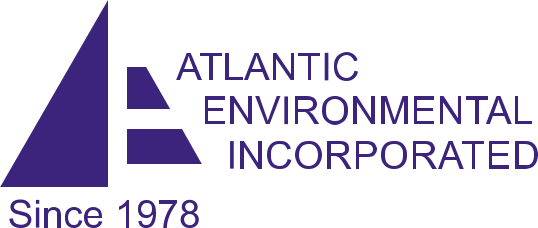If you need assistance with indoor air quality testing/sampling as discussed in this article call us at 973-366-4660 or email us at info@atlenv.com for details and a free estimate.
Written by Robert E. Sheriff, MS, CIH, CSP, President and Henry P. Shotwell, Ph.D., CIH, Vice-President
April 4, 2020
Have you ever gone into the office on Monday morning and noticed a strange smell that wasn’t there on Friday? What’s worse, by noon you don’t feel so good! Maybe it is a headache, or your eyes burn, or your throat is sore, or your skin itches or you just can’t concentrate on your work.
The question in your mind is obvious: Is the smell connected to my symptoms and could it be from something here in the office? What’s even more unnerving is that you go out for lunch and you feel better! What should I do? Should I not go back to work? Immediately call my manager? Call the Health Department? Have the building evacuated?
There is no simple answer to all these questions. History shows that, in general, office air quality problems are almost never life-threatening and they seldom cause illness—but there are exceptions. There is a condition called “Sick Building Syndrome” where multiple individuals in a building have the same symptoms. There is also a condition called “Building Related Disease” where multiple individuals in a building contract the same illness.
Focus On the Smell
Let’s focus on smells. The first is to try to characterize the smell. Like rotten eggs? Like natural gas? Like nail polish? Like paint thinner? A musty smell? Each one of these odors gives an important clue to the Indoor Air Quality Specialist as to the type of tests that should be performed. Some can be done with direct reading instruments, others may require obtaining a sample for laboratory analysis.
Natural Gas
The highest priority is if it smells like natural gas. It may be natural gas! Call the gas company and have them check the building immediately. Actually, natural gas and propane are odorless. A chemical smell called a mercaptan, which is the same chemical that a skunk produces is added to warn people (clever little beasts!).
Sewer
If it smells like a sewer, it could be from a “dry trap” which is a drain trap that has dried out—due to lack of use or a leak. It could also be a sewer pipe leak or back-up or a failed septic system. A plumber is the first person to call. Some plumbers have the ability to inject smoke into the drain/vent to identify air leaks.
Nail Polish / Alcohol
If it smells like nail polish, it could be nail polish! Or nail polish remover, or rubbing alcohol, or paint thinner—careful investigation will often locate a source.
Varnish / VOC’s
If it smells like varnish, it could be from oil-based paint, mineral spirits, lab solvents, lighter fluid or other chemicals called Volatile Organic Compounds (VOCs) which include gasoline solvents, turpentine, and a variety of different alcohols. Again, finding the source is usually not too difficult—the closer you get the stronger it smells!
Exhaust
Don’t forget that the smells may be coming from the roof—or outdoors. Often, exhausts from labs, washrooms, construction, vehicles or next door are being drawn into the building by the air intakes on the roof next to the lab exhaust, or air intakes next to the truck loading dock.
Musty
Musty smells are a whole issue by itself! If this is what you smell, refer to one of our articles on that subject.
Find The Solution
The solution is to find the source, or call the gas company (if it is a gas smell), and get it stopped. If the source can’t be found, you may need an indoor air quality consultant to further investigate, bring in sampling equipment, and determine if what you smell can be identified, the source located, whether it is a hazard, and whether your symptoms are due to what you smell.
Are you wondering “What’s that Smell in my Office?”? Contact Atlantic Environmental today.
Our primary service areas for Odor Testing/Sampling and Consulting are New Jersey NJ, New York NY, (New York City), Pennsylvania PA, Connecticut CT, Delaware DE, Massachusetts, (Boston) MA, Rhode Island RI, Washington DC, Wisconsin WI, Maryland MD, Michigan MI, Illinois (Chicago) IL, Virginia VA, Indiana IN, Georgia (Atlanta) GA, Alabama AL, North Carolina NC, South Carolina SC, Tennessee TN, Texas (Dallas, Ft Worth) TX, Oklahoma OK, DC, Arkansas AR, Florida FL. We can service most other areas of the U.S. but with some added travel charges.



